30 best universities in Tokyo 2026
-
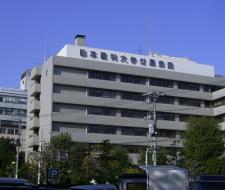
-
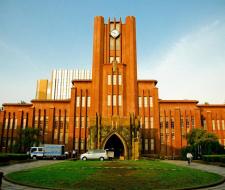 from 4650.00 $ / year
from 4650.00 $ / year -
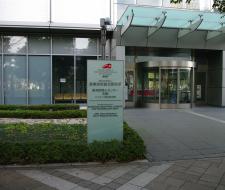
-
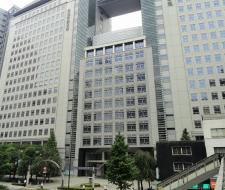 from 14000.00 $ / year
from 14000.00 $ / year -
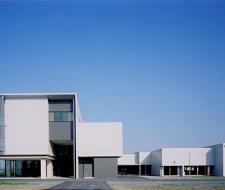
-
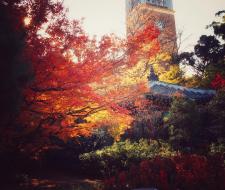 from 833500.00 jpy / year
from 833500.00 jpy / year -
 from 5113.00 $ / year
from 5113.00 $ / year -
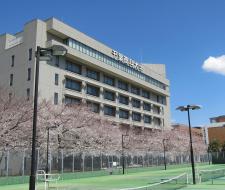 from 500000.00 cny / year
from 500000.00 cny / year -
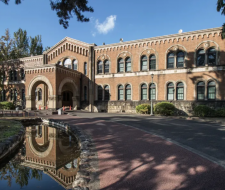 from 535800.00 jpy / year
from 535800.00 jpy / year -
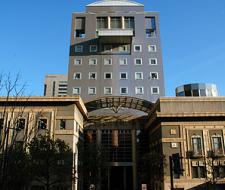 from 350000.00 jpy / year
from 350000.00 jpy / year
Japan is a country with a strong economy, thanks to which its social system is developing at an incredible pace. The country's educational system is well–established, offering up-to-date higher education for foreign students. The government has set a goal to admit 300,000 international students by 2020, so universities have greatly simplified the application process for students. Japan offers public and private educational institutions, a wide range of diploma courses in a variety of fields.
Educational system in Japan works according to the 6-3-3-4 system:
- Compulsory education – 6 years of primary school;
- 3 years of secondary school;
- 3 years of high school;
- 4 years of university.
International studies show that after completing compulsory education, the school achievements of Japanese children aged 15 are excellent: they occupy a leading position among the "Big Seven" countries. In 2015, as part of the International Student Assessment Program (PISA), which evaluates student performance among OECD members, Japan ranked second in scientific literacy after Singapore, eighth in reading comprehension after South Korea, fifth in mathematical literacy after Taiwan. Let's take a closer look at how the Japanese education system works and what allows it to achieve high results.
Alternative destinations
Educational life of foreign students in Tokyo
International children attend classes from Monday to Friday with additional lessons for half a day every two Saturdays of the month. Many students attend juku (preparatory school after classes), prepare for entrance exams, and study specific subjects of the program. Other students attend circles of interest or additional classes:
- Baseball;
- Volleyball;
- Kendo or other sports.
There are no cleaning services in Japanese schools. International students are divided into teams and take turns solving issues related to cleaning: washing floors, wiping blackboards, sweeping, weeding school gardens. This fosters respect for work, helps to form team building skills.
Schools regularly take part in festivals, sports, cultural festivals, exhibitions, performances and song contests. Preparation is carried out in free time from lessons, complementing a busy student schedule.
Higher education for foreign students in Tokyo
There are more than 700 higher education institutions in Japan, most of which are private. 17 of top universities in Tokyo of the country entered the ranking of the best universities in the world QS-2019:
- Tokyo University took 23rd place;
- Kyoto University - 35th place;
- 5 more are in the TOP 100.
Half of the 6,000 students came from 90 countries of the world: most foreign students receive higher education, pass the selection and admission procedure in English, starting to study from the fall semester. 50% of university educational staff came from abroad, which contributes to ethnic diversity on campus.
There are three types of higher education institutions in Japan:
- Senmon-gakko – specialized schools offering two-year professional courses: hairdressing, fashion, nursing, etc. There are schools that offer more general courses, for example, business. It is easier to enroll in Senmon-gakko than in universities — many of them accept students on the basis of documents, without interviews or entrance exams. Some accept foreign applicants who have not graduated from high school and therefore do not have the right to enter universities. There are more than 3,000 Senmon-gakko schools in the country (350 are located on the territory of Tokyo), more than 90% of them are private educational institutions.Tuition fee varies depending on the course, but they are the cheapest among the higher education options in Japan. The average tuition fee is about 3 million yen ($27,782). The shorter duration of courses, more modest staffing of the learning process helps to reduce costs compared to the university.
- Short-term universities are similar to specialized schools (2-year courses), but are less professionally oriented. There are about 400 short—term top universities in Tokyo, Japan - the cost of studying in them is 20% more expensive than the prices of senmon-gakko.
- Universities offer higher education that allows you to apply for employment in large corporations and international companies.
Today there are about 800 universities operating in Japan, which can be divided into three types:
- National universities are supported by the state and paid for by taxpayers: there are about 90 of them. These are institutions with a large budget: the most famous among them are the University of Tokyo and Kyoto University. Funded by the state, they are the cheapest in terms of tuition fees – approximately 5 million yen ($460,404) for a 4-year academic period.
- Public universities are run by the prefecture in which the university is located, and are funded by taxes of citizens of this prefecture. There are about 100 of them in the country. Compared to national universities, these universities are smaller, the key difference is that students from this prefecture pay less than students from other regions and countries. Tuition fees are similar to the cost of studying at national universities.
- Private universities in Tokyo do not receive government funding, because studying in them is more expensive. They are distinguished by good conditions, unique characteristics. There are about 600 private universities in Japan, accounting for more than 75% of students: Keio University, Waseda University and Sofia University are the three most famous. Private universities are the most expensive: tuition costs about 7 million yen ($648,26) for humanities and 8 million yen ($740,87) for natural science courses.
Tuition fees at best universities in Tokyo are relatively affordable. Private institutions can set their own fees, but the top universities do not necessarily set the highest rates. On average, you have to pay between 500,000 and 1,000,000 yen per academic year. Along with the standard tuition fee, you will need to pay the entrance fee (280 000 yen) and exam fees (17 000-30 000 yen), which are not included in tuition fee. Due to the Japanese government's desire to attract more international students, universities offer many scholarships, for example, the Monbukagakusho Scholarship. Grant opportunities and funding depend on the conditions of a particular university.
Main peculiarities of Japanese education for foreign students
- Children whose 6th birthday comes on April 1 or earlier enter the first grade of primary school this year;
- The academic year lasts from April to March;
- Foreign citizens do not fall under the law on compulsory 9-year education, but can enroll in local primary and secondary schools;
- Some public elementary, middle, and high schools create conditions for the admission of foreign citizens and/or Japanese children returning from abroad;
- Special schools are available for children with physical/mental disabilities who may have difficulty studying in general education schools;
- The curriculum of secondary schools includes the study of morality and ethics: this is a separate subject, textbooks are issued on it, and special time is allocated. The lessons discuss what children should or should not do, moral dilemmas, students model how they will react to a particular controversial situation.
How to apply to universities in Tokyo
Many Japanese universities offer to take a special entrance exam for privately funded international students.
If you want to enroll in an university in Tokyo under a scholarship program, in particular, to receive funding from the Japanese government (for example, the MEXT program), it is better to find the necessary instructions on the official website of the institution or contact to SMAPSE managers.
General requirements for obtaining a Bachelor's degree for foreign students in the best universities in Tokyo:
- Completed 12 years of secondary school education;
- A certificate or a report card of your progress;
- No problems with the immigration laws of Japan, which may prevent you from entering Japan or studying at a Japanese university;
- Pass the exam for international students for admission to the Japanese University (EJU), which is conducted by the Japanese Organization for the Support of Foreign Students (JASSO);
- Suitable language level proficiency (Japanese or/and English);
- Medical card.
As for applying to a Japanese university, you need to carefully study the conditions and methods of applying to a particular university. Some universities require a personal application, the results of the Japanese Language Exam (JLPT) and the results of the TOEFL English language exam. Some universities require entrance exams, for which it is necessary to come to Japan during the examination period and take them directly at the university.
Some universities require letters of recommendation. The format of letters of recommendation depends on the university, so we advise you to examine statements before starting enrollment procedure.
Cost and fees to study in universities in Tokyo
Foreign students can study at a public or private university in Tokyo, but in any case, for a fee.
Tuition fee at the best universities in Tokyo varies from 3800 to 5000 euros per academic year. The cost of education can be reduced by different scholarships by the Ministry of Education of the country. The applicant will have to prove a good knowledge of the Japanese language and high academic performance. The scholarship amount is approximately 830 euros.
In addition to the cost of studying in Tokyo, foreign students will have to add:
- Accommodation options:
- University campus;
- Host family;
- Rent an apartment or a room.
- Food;
- Pocket expenses;
- Educational materials (sometimes);
- Private lessons.
The cost of all options is not too different, the price depends on the city where the student lives and ranges from 390 to 5000 euros per month. About 200 EUR is enough for one person to eat monthly. Student life in the style of japan involves constant travel within the country — this is very popular with young Japanese. Entertainment and transport will take about 140 euros more per month.
Top 14 best universities in Switzerland 2026
| 1 | Glion Institute of Higher Education Switzerland |
| 2 | Les Roches International School Montana |
| 3 | César Ritz Colleges Switzerland |
| 4 | IHTTI School of Hotel Management |
| 5 | Ecole Hoteliere de Lausanne |
| 6 | Geneva Business School |
| 7 | HIM Hotel Institute Montreux |
| 8 | Swiss Hotel Management School |
| 9 | Webster University Geneva |
| 10 | Business and Hotel Management School |
| 11 | Luzern IMI |
| 12 | Swiss Hotel Management School (SHMS) Caux |
| 13 | International University in Geneva |
| 14 | Culinary Arts Academy Switzerland |
Top 10 best universities in Netherlands 2026
Top 35 best universities and colleges in Canada 2026
| 1 | University of Toronto |
| 2 | McGill University |
| 3 | University of British Columbia |
| 4 | University of Alberta |
| 5 | Simon Fraser University |
| 6 | Montreal University |
| 7 | University of Windsor |
| 8 | York University |
| 9 | University of Guelph |
| 10 | McMaster University |
| 11 | University of Manitoba |
| 12 | University of Waterloo |
| 13 | Royal Roads University |
| 14 | Vancouver Film School |
| 15 | Kwantlen Polytechnic University |
| 16 | University of Calgary |
| 17 | Dalhousie University |
| 18 | Fanshawe College |
| 19 | University of Ottawa |
| 20 | Laval University |
| 21 | Sheridan College |
| 22 | University of Regina |
| 23 | Brock University |
| 24 | Thompson Rivers University |
| 25 | Humber College |
| 26 | Vancouver Island University |
| 27 | Mohawk College |
| 28 | Centennial College Toronto |
| 29 | Niagara College |
| 30 | Capilano University |
| 31 | Seneca College |
| 32 | Algoma University |
| 33 | Saint Clair College |
| 34 | Douglas College |
| 35 | LaSalle College |
